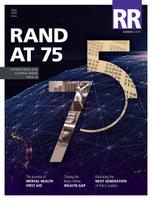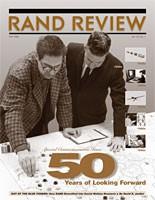RAND Review: May-June 2023 May 12, 2023
The cover story commemorates RAND's 75th anniversary. One feature article explores what it would take to eliminate racial wealth disparities in the United States; another highlights a promising mental health first aid initiative in New York City.

































































































